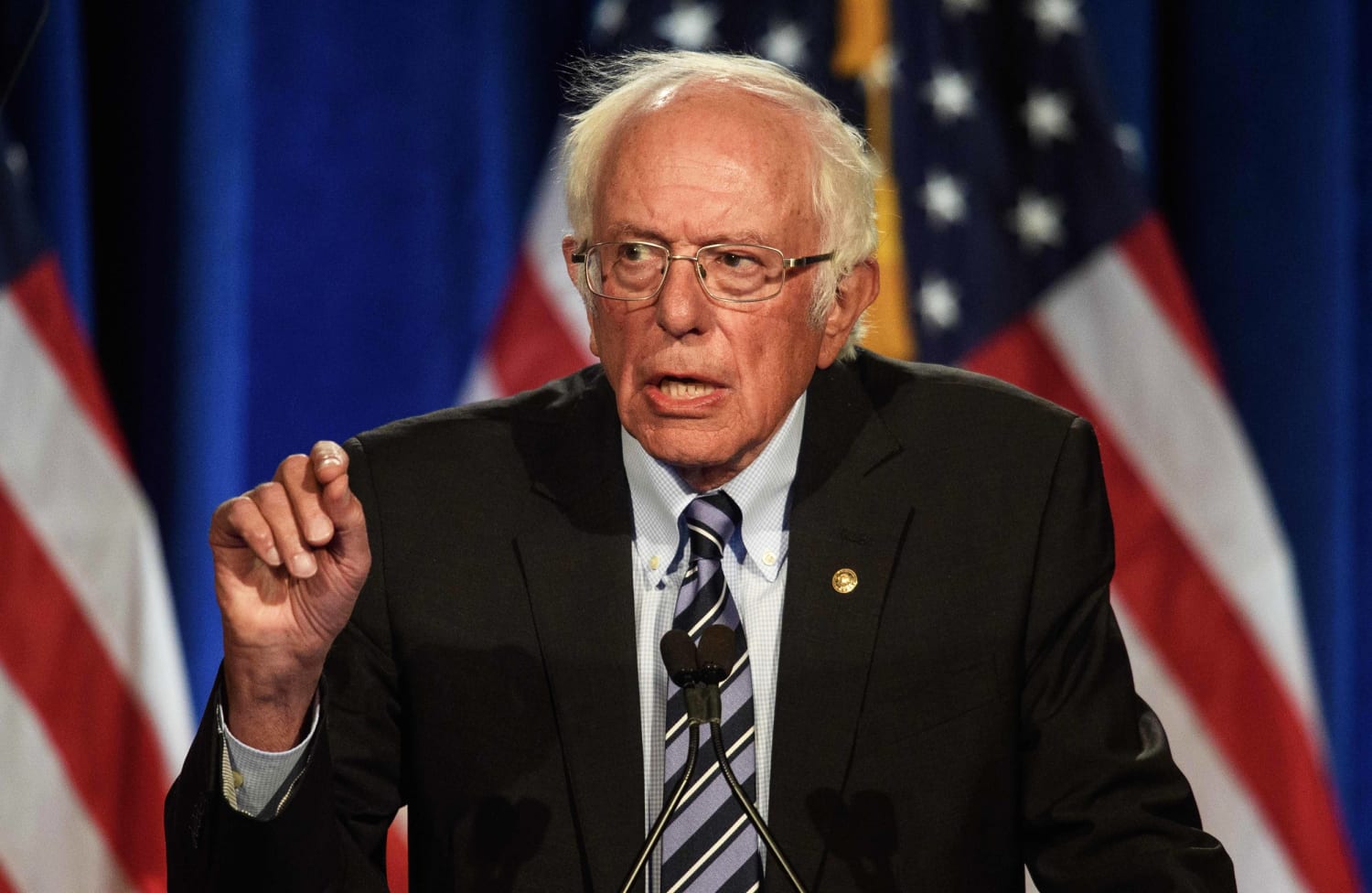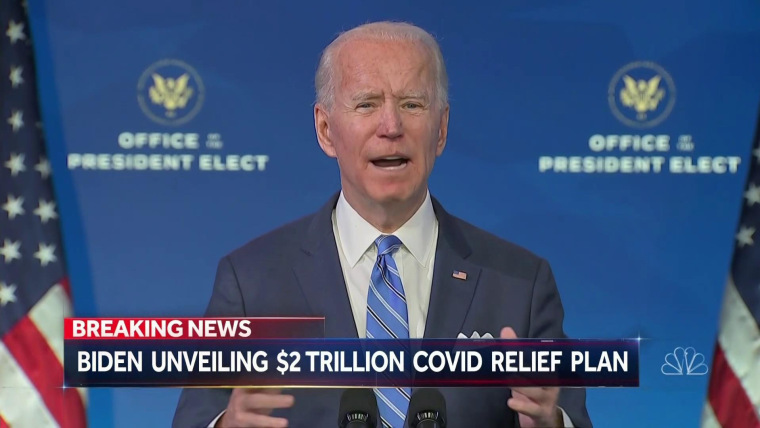Democrats in Congress are looking to advance their longstanding goal of raising the federal minimum wage to $15 an hour, introducing legislation Tuesday that would do so over five years.
“In the richest country in the history of the world, if you work 40 hours a week, you should not be living in poverty,” Sen. Bernie Sanders, I-Vt., the incoming chairman of the Senate Budget Committee, told reporters. “Minimum wage must be a living wage, enabling people to live with dignity. It is unacceptable that Congress has not passed an increase in the minimum wage since 2007 — 14 years ago.”
President Joe Biden’s $1.9 trillion Covid-19 relief plan also contains a provision to raise the federal minimum wage from the current level of $7.25 an hour to the $15 minimum. The president also signed an executive order last week telling the Department of Labor to develop recommendations on providing the $15 minimum wage to federal workers.
But the legislation, while supported by many Democrats, faces opposition from Republicans and would be difficult to get through the evenly split Senate, requiring support from all 50 Democrats and 10 Republicans to overcome a filibuster.
The House passed a bill to increase the federal minimum wage to $15 an hour in 2019, but lawmakers from rural and Republican-leaning districts raised concerns, claiming the increase would be too much of a burden for some small businesses, especially in places where the cost of living is lower than in large urban areas. GOP leaders branded the measure a jobs killer and claimed it would be devastating to working families.
The Congressional Budget Office found in 2019 that increasing the federal minimum wage would, in 2025, boost the earnings of 17 million workers who would otherwise make less, possibly increase wages for about 10 million others, and raise about 1.3 million people above the poverty threshold. But, according to the analysis, another 1.3 million other workers would become jobless.
Asked about advancing the minimum measure under budget reconciliation — which would allow Democrats to pass the bill as part of taxing and spending policies with a simple majority, avoiding a Republican filibuster — Sanders said he thought it would be possible to do.
“The bottom line, I think common sense makes this point: If millions of workers receive a pay increase, there will be less dependency on public assistance, which will have a significant impact on the deficit, which means that it should be considered as part of reconciliation,” he said.
Lawmakers at the press conference pointed to Fran Marion, a single mother of two teenagers who works at a McDonald’s in Kansas City, Missouri, as an example of why the bill is needed.
Marion said gaining $2.50 more an hour to bring her to the proposed minimum wage “would help us keep a permanent roof over our heads, food on our table, healthcare, and money to send them to college. And most of all, it will mean I can look at my kids in the eye and tell them that I can give them a life better than mine.”
Source: | This article originally belongs to Nbcnews.com











